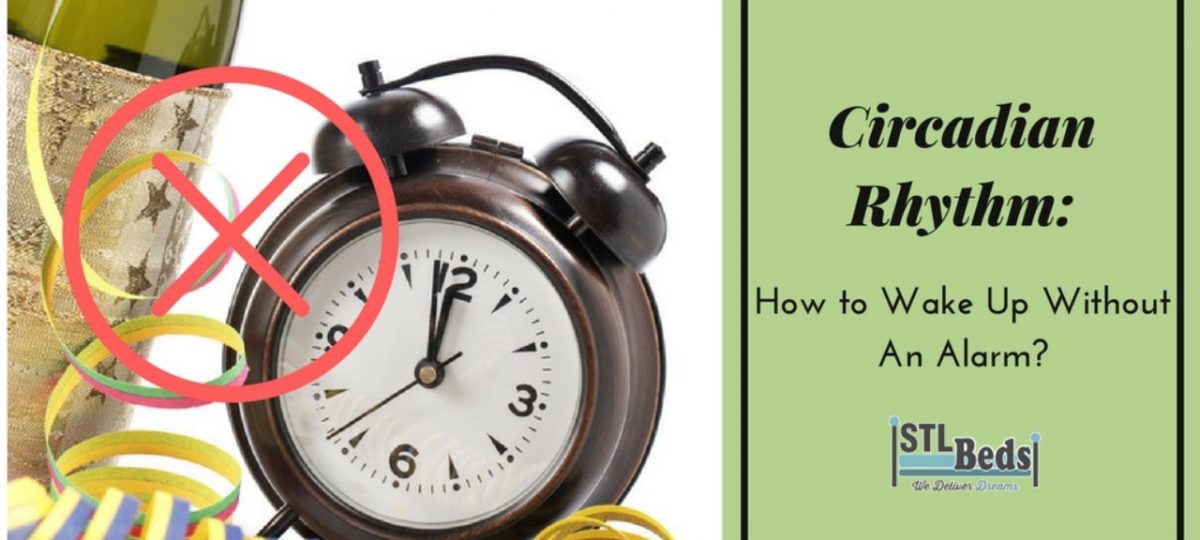Every purchase made online is encrypted with a high level of security you’ve come to expect. Your private information is never shared nor sold, so you can buy with confidence. You can also visit our store if you are in the St. Louis area.

The weekdays are marked by a blaring, annoying alarm followed by groggily starting your day. Even as you brush your teeth and comb your hair, you can’t help but look longingly back at your bed and wish you were in it.
The weekends, however, are different. No rush to get dressed and off to work. But it’s more than the lack of work that’s making Saturday and Sunday the relaxing sort of days. It’s the lack of an alarm clock. The lack of a harsh noise disrupting your peaceful sleep. You would wake up naturally, be wide awake and alert, and be ready to start the day; if only you could wake up during the weekdays without that incessant alarm.
But you can.
It is possible to train yourself to wake up before your alarm clock goes off. You’ll be able to use your body’s natural circadian rhythm to awake without the jarring interruption of an alarm. The key is to understand your circadian rhythm and use it to your benefit.
Table of Contents
Circadian Rhythm
What is a circadian rhythm? It is what makes you feel alert or sleepy, depending on your sleep habits and the time of day. If you adjust your rhythm to your own schedule, you will wake naturally and be ready to start the day, because your body is ready to be alert.
Why are you still groggy when you are awakened by an alarm? Simply put, your body was not ready to be awake. You may have been in the middle of a deep stage of sleep, not to mention a wonderful dream.
Preparation
To stop using an alarm to wake up requires a consistent schedule and mindful sleep. Get your circadian rhythm in tune with your sleep and wake schedule by going to sleep at the same time each night.
Plan a nighttime ritual to remind your body that it is time to calm down and rest. Brush your teeth. Wash your face. Put on your pajamas. Crawl into your comfortable, warm bed and perhaps read a book for twenty minutes before lying down under the covers.
As you drift off, tell yourself what time you need to wake up. You can literally train your body to know it’s time to awaken. It won’t happen right away, but after consistently setting your internal clock to go to sleep at a regular time, as long as you allow enough time for the proper amount of sleep, you will begin to wake up on your own.
Your circadian rhythm will help you wake each morning, but not if you are exhausted. You must first discover how much sleep your body requires. The average adult sleeps between seven and nine hours per night. Practice on the weekend or continue to set your alarm and adjust your bedtime so that you get the correct amount of sleep each night.
Try moving your bedtime gradually so that your body adjusts to it properly. For instance, if you’ve been going to bed at 11:00 and should be asleep by 10:00, you should back up your bedtime by fifteen-minute increments. Go to sleep at 10:45 the first night, 10:30 the second night, 10:15 during the third week, and by the time a month is up, your body will be ready for bed at 10:00.
This slow transitioning of your bedtime will help your body adjust its circadian rhythm to the new schedule, making it easier to fall asleep at the earlier time.
Before Bed and Upon Waking
Your bedtime ritual should help you calm your mind and your body in preparation for sleep. It can include:
- Shutting off electronics
- Dimming the lights
- Taking a warm bath
- Reading
- Meditating
- Yoga or other stretches
Do not use alcohol as a method of helping you relax and be ready to sleep. Alcohol actually has the opposite effect. Even if the body sleeps, it is a fitful sleep with less deep sleep than the body actually needs to rest.
In the morning, upon waking, open the shades immediately to expose your body to bright light. This will help your body get back on schedule and wake up fully. And always set an alarm just in case. There may be a time or two that you are short on sleep or extra worn out and just won’t wake up on time. Your alarm clock will become a fallback measure in case you do sleep in.
